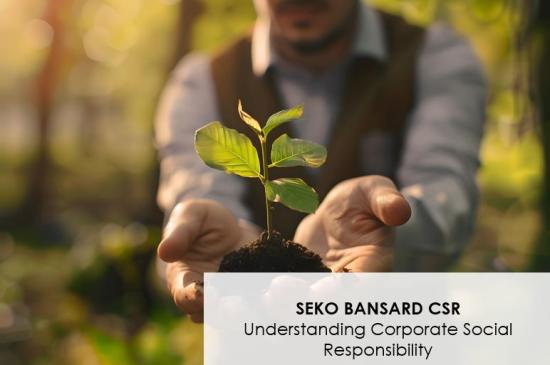We are always saying that CSR is very important to enterprises, it is a new revolution for enterprise management, and it is a power source to improve the ability of enterprises to open up and so on, so what exactly is CSR? And what are the noteworthy points? This article will explain your doubts one by one.

Corporate Social Responsibility (CSR) refers to the efforts made by companies to conduct their business in an ethical manner, considering their impact on the environment, society, and economy. CSR encompasses a wide range of activities and initiatives aimed at making a positive difference in the world, going beyond the primary goal of profit generation.

Key Components of CSR
1. Environmental Responsibility:
- Sustainability Practices: This includes reducing carbon emissions, minimizing waste, and using resources sustainably. Companies might implement recycling programs, use renewable energy, and promote products that are environmentally friendly.
- Pollution Reduction: Efforts to reduce pollution can include sourcing materials locally to decrease transportation emissions and encouraging customers to use sustainable practices, such as reusable packaging.
2. Social Responsibility:
- Human Rights and Fair Labor Practices: Companies should ensure fair treatment of employees, provide safe working conditions, and avoid exploitative labor practices. This extends to their supply chains, ensuring all partners also adhere to these standards.
- Community Engagement: This includes supporting local communities through philanthropy, volunteer work, and partnerships with local organizations. Companies might donate to local causes, support education initiatives, or help with disaster relief efforts.
3. Economic Responsibility:
- Ethical Business Practices: Companies should engage in fair trade, avoid corruption, and ensure transparent business practices. This includes maintaining integrity in financial reporting and marketing practices.
- Economic Sustainability: Ensuring long-term financial health without compromising ethical standards or the well-being of employees and communities.
Importance of CSR
Firstly, and most importantly, it improves brand reputation. Engaging in CSR improves a company's public image and builds trust among consumers, who are increasingly looking for brands that are aligned with their values. In addition, from an employee perspective, employees are more likely to stay with companies that are committed to ethical practices and social responsibility. Having fulfilled these two points we can see that companies with strong CSR initiatives can attract investors who are looking for sustainable and ethical investment opportunities. CSR can increase investor confidence and access to capital.

Challenges of CSR
Implementing CSR can be resource-intensive, requiring significant time and financial investment. Companies might face challenges such as:
- Balancing Profit and Purpose: Integrating CSR into business strategy without compromising profitability can be difficult.
- Risk of Scrutiny: Increased transparency and reporting can open companies to criticism if their efforts are deemed insufficient or insincere, a phenomenon known as "greenwashing".
- Resource Allocation: Small and medium-sized enterprises may struggle with the resources needed to implement comprehensive CSR programs.
SEKO BANSARD’s Commitment to CSR
SEKO BANSARD is deeply committed to CSR, integrating sustainable practices into our logistics and supply chain operations. We focus on reducing our environmental footprint, promoting fair labor practices, and engaging with local communities to foster positive social impact.
For more detailed information on our CSR efforts, please visit our CSR Approach page. By understanding and embracing CSR, we can all contribute to a more sustainable and ethical global economy.
REF:
1. SEKO BANSARD’s CSR Approach
2. Corporate social responsibility (CSR): A one-stop guide




